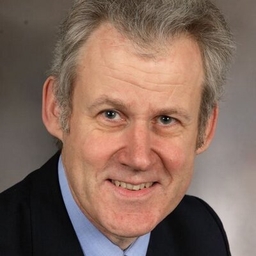
Articles
-
1 month ago |
adamsmith.org | Eamonn Butler
On 8 May 1899, in Vienna, Friedrich Hayek was born. He would become the dominant intellectual influence of the later twentieth century and is still influential in economic and political theory today. In the decades after the Second World War, Hayek kept alive the spirit of personal and economic freedom that had been crushed by the chaos of War and the interventionist politics that followed it.
-
2 months ago |
adamsmith.org | Eamonn Butler
Ministers tell us that everything is ‘on the table’. And many people believe, even expect, that the UK should retaliate against Donald Trump’s new trade tariffs with tariffs of our own. It definitely should not. That would only harm our own citizens and our own businesses. Tariffs would be a tax on the goods and services that we buy from the US. And we buy a lot from the US: around £58 billion a year’s worth. That is nearly £1000 for every person (including children) in the country.
-
2 months ago |
adamsmith.org | Eamonn Butler
The Trump administration calls this ‘Liberation Day’—a triumph for US workers and a levelling of the global trade playing field—with sweeping new tariffs on imports from the UK and EU. But the policy is more likely to shackle the US and European economies, rather than liberate them. The argument, of course is that tariffs will protect US industries by making foreign goods, such as cars, more expensive, thus boosting demand for US-made alternatives. But recent history shows the folly of it.
-
Mar 16, 2025 |
adamsmith.org | Eamonn Butler
The illusion that one can be scientific about complex phenomena (such as the workings of economic life) that depend on facts, values and information that we could never ascertain, is a dangerous one. It leads to the elevation of people as ‘experts’ whose prescriptions are unquestioned. It leads to claims that, lacking the detailed information, are necessarily broad and easily sensationalised, creating pressure on politicians to do the wrong thing.
-
Mar 15, 2025 |
adamsmith.org | Eamonn Butler
Economists believe that, with proper scientific understanding and analysis, they can make policy recommendations to governments that will improve the stability, efficiency, and operation of economic life. But in believing that, they have already made a crucial assumption: that big solutions work better than lots of small solutions; that decisions made centrally can be more rational, and can produce better results, than those made at the local or individual level.
Try JournoFinder For Free
Search and contact over 1M+ journalist profiles, browse 100M+ articles, and unlock powerful PR tools.
Start Your 7-Day Free Trial →X (formerly Twitter)
- Followers
- 7K
- Tweets
- 11K
- DMs Open
- No

RT @Martin_Durkin: Milei slashed public-spending in Argentina by a third, and within a year the poverty rate fell by almost 40%. The State…

https://t.co/njsj70b4zP

https://t.co/I2ZeKmBQ43